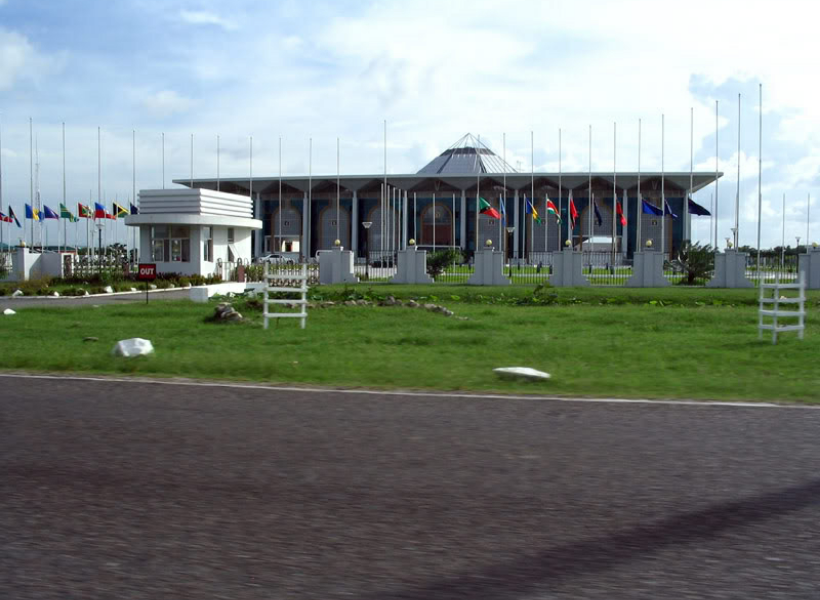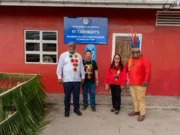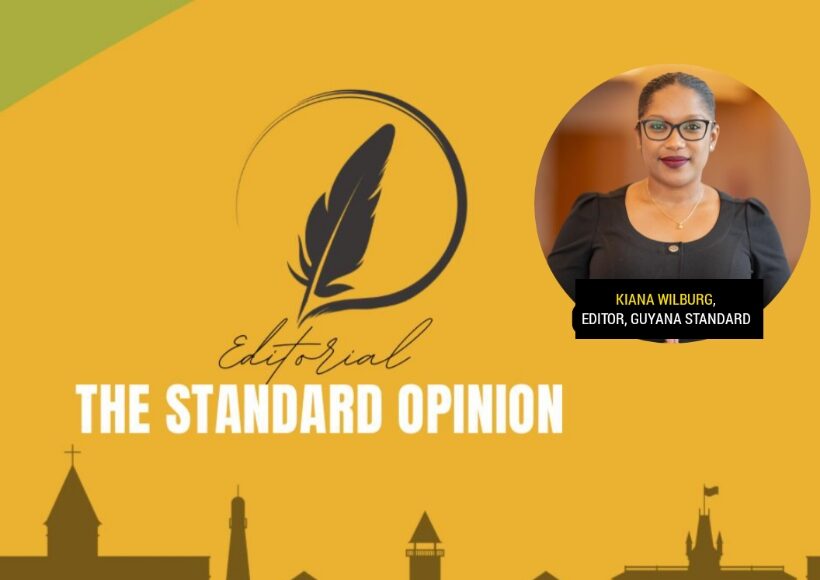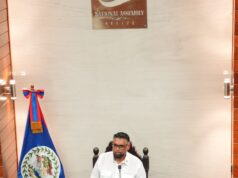By Kiana Wilburg
Three political parties have stated their intention to engage ExxonMobil on fairer terms for the nation’s oil if they assume office. Those parties are the Alliance For Change (AFC), We Invest In Nationhood (WIN), and the A Partnership for National Unity (APNU).
In May, the AFC released an 18-point plan for the oil sector, promising to renegotiate all existing oil contracts. David Patterson, an executive member, confirmed with Guyana Standard that this included the lopsided Stabroek Block Production Sharing Agreement (PSA), which the very AFC and its partner, APNU, signed in 2016.
On Thursday last, WIN launched its manifesto, which included plans to bring ExxonMobil back to the negotiation table to secure better terms for the country.
At the APNU’s press conference on Friday, leader Aubrey Norton said his party would “engage ExxonMobil on the Stabroek Block PSA with the aim of increasing benefits for Guyana.” A journalist asked Norton if he would seek to increase the 2 percent royalty during those discussions with the oil company but he avoided telegraphing his position on this. He only said that all aspects of the agreement that could secure a greater share for Guyana would be reviewed and discussed but firm positions will only be provided when APNU assumes office. Norton also noted that there will be an advisory group to help the party as it moves forward. Another journalist asked Norton to address how he would engage in negotiations when Exxon is against this. He retorted that the law (but I assume he must have meant the PSA), provides for this.
Norton is correct that the PSA does provide for renegotiation, but this CANNOT OCCUR WITHOUT EXXON’S AGREEMENT. Perhaps, if we underline this point in red, put it on a billboard, or ask a US Congressman to make a tweet about it, then it will actually sink in.
Everyone on God’s green earth has accepted that the Stabroek Block PSA could have been better. The royalty and signing bonus could have been higher, relinquishment provisions could have been tighter, other taxes and duties could have been applied, local content could have been placed into the non-recoverable bracket, and the list can go on.
The reality however is that Exxon is not budging on anything that gives Guyana more money via the contract, unless of course it can be recovered in some way, shape, or form. And should Guyana try to play hard ball, APNU+AFC gave Exxon a super sweet provision in its contract called the Stabilization clause, famously referred to as the “strangulation clause” which prevents any new fiscal demands being imposed on the oil giant, otherwise, the State must provide compensation in full.
Even the incumbent learnt this lesson. Though it was not able to renegotiate the fiscal terms, it secured other benefits through the Local Content Act and the push for a gas-to-energy project. Authorities were also able to apply a flaring fee of US$45 per tonne of CO2 emitted. This does not count as a direct benefit for citizens such as those preserved in the Local Content Act for employment or procurement opportunities. Be that as it may, when examined from a regulatory standpoint, this is a feather in Guyana’s cap.
The overarching point of this editorial is not to rehash the consequences of unilateral alterations, as this was dealt with extensively by Guyana Standard’s Editor-in-Chief, Abena Rockcliffe. This author aims to simply remind the leaders of WIN, APNU and AFC that this particular topic of “we shall engage the oil giants, bring them back to the table, and examine areas for better terms” is an overused smoke screen. You all must know by now that Exxon would only engage in a discussion on the contract for recoverable trade offs or non-fiscal ones at the very least.
How about engaging ExxonMobil beyond the contract as the government has done? What else can we get Exxon and its partners, Chevron and CNOOC to commit to in a manner that brings more benefits to the people?
The Stabroek Block partners launched the Greater Guyana Initiative (GGI) in 2021, a programme that sees US$100 million (GYD20 billion) being spent over 10 years to strengthen the Guyanese workforce and increase the competitiveness of local businesses across sectors. This is evidence that the oil companies are willing to be enablers for the nation’s development. How about leveraging this to our advantage ? As other nations have done, Exxon and its partners can be engaged on making a contribution to a local content development fund, the resources of which could be used to empower more women with capital to enter the supply chain.
What about engaging these companies to use a portion of their GGI funding to develop learning centres or sports training facilities in vulnerable communities? We have all seen Exxon’s openness to invest in and align itself with the country’s love of cricket and other sports. How about engaging Exxon on some of its key partners in a more structured way in this area? Exxon’s connections with the NBA, for example, can also be a point of discussion, as it was for the government of Nigeria back in 2013. During that time, the National Basketball Association (NBA), Women’s National Basketball Association (WNBA), Africare, and ExxonMobil had launched “Power Forward,” a youth engagement initiative which used basketball to develop health, leadership, and life skills in Nigeria. Instead of being a one-off or annual sponsorship of a tournament, there was a clear path of investment for development.
By its own company records, ExxonMobil in particular is passionate about supporting initiatives that increase proficiency in maths. In the USA, ExxonMobil became a founding sponsor of the National Math and Science Initiative (NMSI) in 2007. It made a US$125 million commitment to the nonprofit organization to provide scalable and rigourous programme solutions that empower school communities to prepare all students to succeed in college and the workforce. To better prepare students and teachers for the world of science, technology, engineering, and mathematics (STEM), NMSI replicates proven programmes with quantifiable results. A similar initiative would indeed be complementary to ongoing efforts to improve proficiency of maths countrywide.
It is hopefully evident by now that there are other trade-offs that can be discussed beyond contractual renegotiation. We know that trying to play hardball on the latter is a dead end. We know that fooling the electorate it is even possible, is not in anyone’s interest. Most importantly, we recognize that value can be recouped in other ways. This is the conversation these parties must have with the electorate. How exactly are you going to claw back value and where? With 35 days to the elections, there is still time to course-correct.











